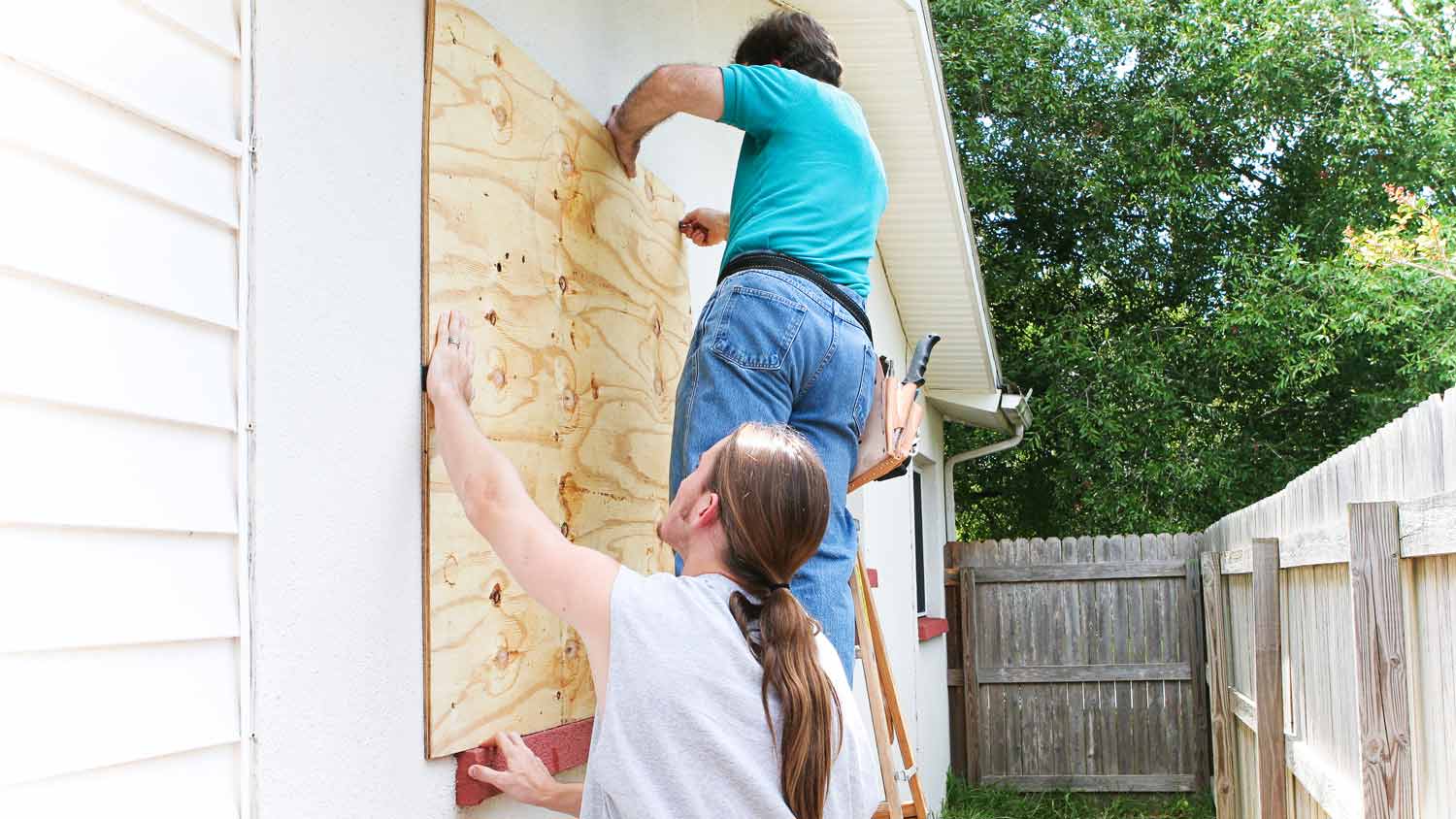
Building permits are essential. Here’s everything you need to know about building permit costs to budget accordingly for your building project.
The cost to install a dumbwaiter ranges from $8,000 to $12,000, with an average of $10,000. Several factors can affect the cost, including the size, materials, and location.


Dumbwaiter materials account for roughly 45% of installation costs.
Labor typically costs $750 to $7,500, but it can increase to $3,500 to $11,000 if shaft installation is required.
Kitchen and bathroom dumbwaiters are more expensive, ranging from $8,000 to $12,000.
Dumbwaiter size is a key cost factor, with mini cars starting at $2,000 and oversized cars starting at $10,000.
If you want to install a dumbwaiter in your home, expect to pay $10,000 on average for installation, with a typical range of $8,000 to $12,000. However, it can cost you as little as $4,000 if you choose a small, low-cost model, or as much as $20,000 if you want to install a high-end electric model.
A dumbwaiter is not your typical universal design idea for a home, but when you install one, you’ll never want to go back. This miniature elevator can take food from the kitchen to the upstairs, and bring the dirty dishes back down. Or, it can take laundry from the bedrooms straight to the laundry room.
The cost of installing a dumbwaiter breaks down into three basic categories: the cost of the dumbwaiter itself, the cost of installing a shaft for the dumbwaiter, and the cost of installing the dumbwaiter into the shaft.
“When planning the location of a dumbwaiter, focus on where you will use it most,” says Bob Tschudi, Angi Expert Review Board member and general contractor in Raleigh, NC. “For example, people who travel frequently would benefit from a dumbwaiter that transported luggage from an upper floor to the garage.”
There are some other cost factors that play more minor roles, though, and you should consider all of these for an accurate project cost estimate.
The size of the dumbwaiter you install will be based on what you will use it for–but the size will also affect the total cost. A larger dumbwaiter will cost more, both because it will require more materials and it will take more labor to create the shaft that will house the unit.
| Dumbwaiter Size | Typical Cost Range |
|---|---|
| Mini car | $2,000–$7,500 |
| Standard car | $4,000–$12,000 |
| Mid-sized car | $7,000–$17,000 |
| Oversized car | $10,000–$20,000 |
The materials alone make up around 45% of your total installation cost, with most dumbwaiters totaling between $2,000 and $7,000. Larger dumbwaiters take up less of the total percentage of the installation because labor costs increase at a higher rate as the materials get larger and heavier.
One factor that affects the material prices is the brand you choose. Below are some prices for common dumbwaiter brands.
| Dumbwaiter Brand | Cost Range |
|---|---|
| Matot | $2,000–$6,000 |
| Inclinator | $3,500–$6,000 |
| Powerlift | $4,000–$7,000 |
| Harmar | $4,000–$7,000 |
Every dumbwaiter has a maximum weight that it can safely lift and lower, and you should always choose the weight limit based on your intended use. For example, if you plan on using the dumbwaiter to move plates of food up to a serving area, you can likely get away with spending less than if you wanted to use it for moving heavy luggage to a garage.
You should plan on spending a little more for a heavy-duty dumbwaiter that can handle 500 pounds, as opposed to a less impressive 100-pound capacity.
You will need to think about how far up and down you want your dumbwaiter to stretch, as a longer dumbwaiter shaft will require more materials and more labor to install. You will always pay more for a dumbwaiter that spans three floors–as opposed to two–provided the same brand and quality are available for both.
Dumbwaiters can serve you well in a variety of locations, and where you choose to install it will affect how much it costs.
For example, installing your dumbwaiter in your kitchen or bathroom for dishes or laundry is likely going to be more expensive than installing one in a bedroom during a bedroom remodel. This is because kitchens and bathrooms have plumbing running behind the walls that your local home renovation company may need to reroute to fit your dumbwaiter in place. This will drive up labor costs significantly unless you’re already paying for a bathroom or kitchen remodel.
| Dumbwaiter Location | Typical Cost |
|---|---|
| Bathroom | $8,000–$12,000 |
| Bedroom | $4,000–$10,000 |
| Dining room | $6,000–$10,000 |
| Kitchen | $8,000–$12,000 |
Installation of a new shaft runs about $2,500 to $3,500. This includes rerouting electrical and plumbing lines, installing the shaft, installing an access door, and painting and finishing both the area and the dumbwaiter.
“When looking for a place to install the shaft, you must determine whether it intersects other systems, such as electrical, plumbing or HVAC ducts,” Tschudi says. “If you are cutting into any wall or floor, consult a structural engineer, who will provide a written report on what you need to do to maintain the structural integrity of your house.”
It costs between $750 and $7,500 to install a dumbwaiter into a shaft once the shaft is complete. This involves fitting the dumbwaiter into the shaft and hooking it up to the wiring. The price for shaft installation and installing the dumbwaiter inside can range from $3,500 to $11,000.
There are two types of dumbwaiters, manual and electric. The type of dumbwaiter you choose plays a significant role in determining the total cost of the installation.
Manual dumbwaiters are raised and lowered by pulling a rope, and therefore they aren't as expensive as dumbwaiters that require a motor. A manual dumbwaiter costs $3,000 to $8,000 to install. They also don't require as much maintenance as electric models.
While still useful, manual dumbwaiters have fallen out of favor with the invention of electric dumbwaiters. Your return on investment (ROI) for a manual dumbwaiter will be much lower than that of a motorized unit.
Electric dumbwaiters are more expensive (they can cost anywhere between $10,000 and $20,000), but they're easier to operate. All you have to do is press a button and the dumbwaiter moves up or down. Not only do they save you effort, but they can also move heavier items.
Some homeowners choose a home elevator instead of a dumbwaiter. While dumbwaiters are practical and useful for transporting items within the home, if your goal is to carry people, then you'll want to look into a home elevator instead. Home elevators cost anywhere from $2,000 to $60,000, with most costing around $30,000.
Since elevators cost much more than dumbwaiters, it could be more cost-effective to install a dumbwaiter if you’re on a tight budget. Depending on the brand and capacity, you can find residential dumbwaiters that transport up to 250 pounds and commercial ones with a 750-pound capacity. These tend to cost more than a standard dumbwaiter but less than an elevator, making them a good middle ground.
With labor accounting for 55% of the installation cost, it makes sense that any avid DIYer would want to save money by installing a dumbwaiter themselves. However, unless you have ample experience installing dumbwaiters, wheelchair platforms, or elevators, then it's best to leave this job to the pros.
A dumbwaiter installation can be dangerous to inexperienced installers. It requires serious heavy lifting and can come with several moving parts that, if installed incorrectly, can result in injuries. Not to mention, if you choose to install an electrical dumbwaiter instead of a manual one, then you're also looking at electrical work—which requires the expertise of a professional remodel designer near you.
If you have the space to install a dumbwaiter without needing to remodel your home, then you might be able to get by by simply renovating an existing area. However, if your home needs significant layout changes to make installing a dumbwaiter a functional project, then you might need to tear down walls, rearrange plumbing, and update your existing electrical wiring and panels. Naturally, the latter is a much greater investment.
You’ll want to factor in all of the extra work and expenses involved if you need to make major structural changes to your home to make your project a reality, The cost to renovate a house averages $52,100, but projects range from $19,500 to $88,000 depending on the scope of the remodeling project.
There are a few things you can do to lower the cost of a dumbwaiter installation—besides doing the work yourself.
The larger the dumbwaiter, the more you’ll pay. For example, a unit measuring 30-by-36-by-48 inches will cost between $18,000 and $20,000. A much smaller model (at 14-by-14-by-20 inches) ranges in cost from $2,000 to $7,500, on average. Make sure you get the size that best suits your needs, but avoid going too large, as that will unnecessarily drive up your costs.
Electric dumbwaiters are more convenient, but manual dumbwaiters are easy to use, too, and they're a lot less expensive. You could save $7,000 to $12,000 simply by downgrading to a manual dumbwaiter.
To lower labor costs, choose a location for the dumbwaiter that isn't too far away from necessary electrical connections. Bonus points if it’s easy for a contractor to access, and it doesn’t require the rerouting of plumbing or electrical lines to make room for the shaft. Contact a professional to do a consultation first and they might be able to recommend a good location for the dumbwaiter.
Home is the most important place on earth, which is why Angi has helped more than 150 million homeowners transform their houses into homes they adore. To help homeowners with their next project, Angi provides readers with the most accurate cost data and upholds strict editorial standards. We extensively research project costs to develop the pricing data you see, so you can make the best decisions for you and your home. We rely on reputable sources, including the U.S. Bureau of Labor Statistics, academic journals, market studies, and interviews with industry experts—all to ensure our prices reflect real-world projects.
Want to help us improve our cost data? Send us a recent project quote to [email protected]. Quotes and personal information will not be shared publicly.
From average costs to expert advice, get all the answers you need to get your job done.

Building permits are essential. Here’s everything you need to know about building permit costs to budget accordingly for your building project.

Looking to turn your yard into a hockey or ice skating paradise this winter? Use this backyard ice rink cost guide to see what the installation will total.

Discover storm damage repair costs, key price factors, and ways to save. Get transparent estimates to plan your home repairs with confidence.

Build a strong and safe home of your dreams. Master the completion of a sturdy structure with these comprehensive steps on how to frame a wall for your home.

What is included in framing a house? This process involves framing the floors, walls, and roof. Contractors must follow a detailed building plan for success.

Explore the best caulk alternative options to seal gaps, prevent leaks, and enhance your DIY projects. Find the perfect solution for any application.